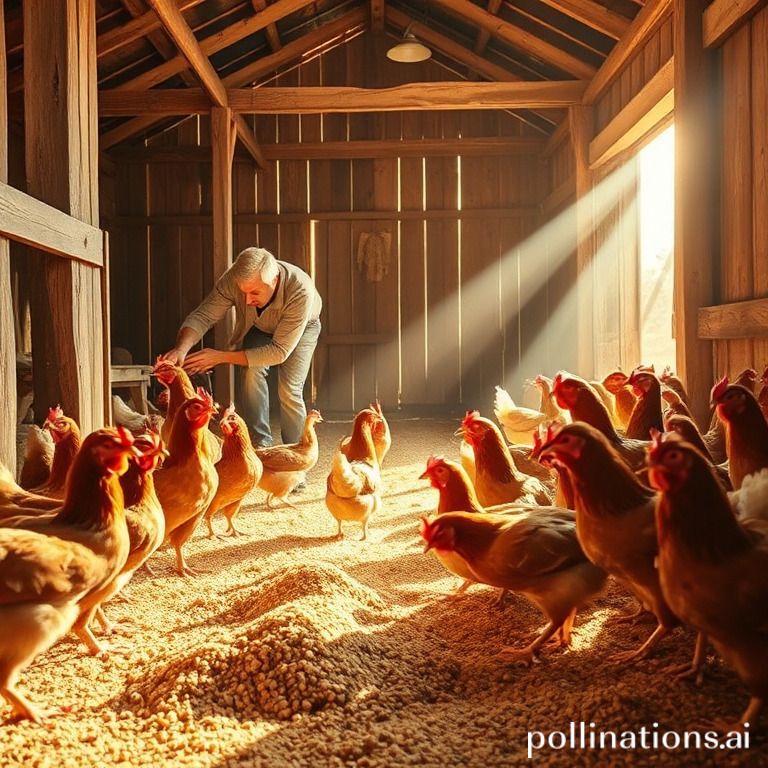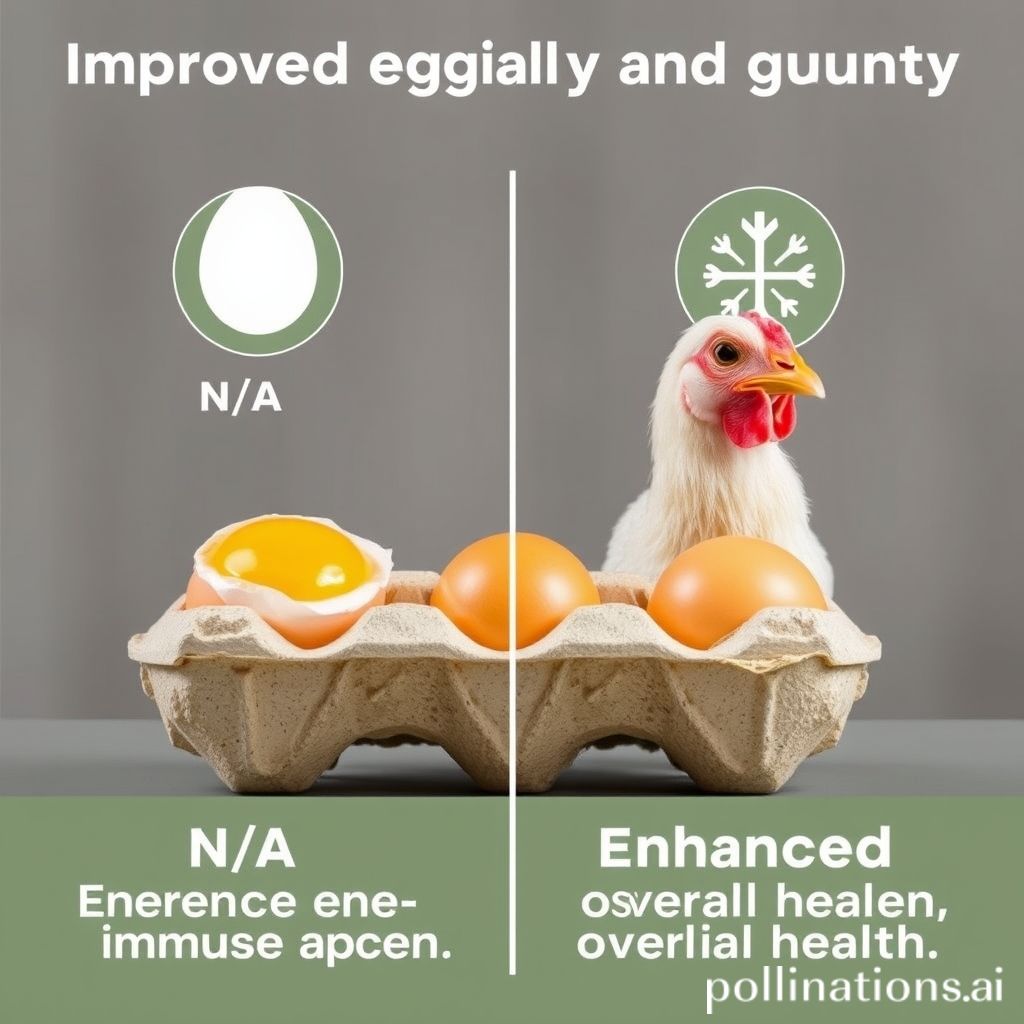Curious about what laying mash is and how it can benefit your chickens’ egg production and health? Look no further! Laying mash is a specially formulated feed designed to meet the nutritional needs of laying hens. It typically consists of a balanced blend of grains, proteins, vitamins, and minerals, all carefully selected to promote optimal egg production.
By providing essential nutrients, laying mash supports the development of strong eggshells, boosts the overall health of your chickens, and ensures a consistent supply of high-quality eggs. If you’re looking to maximize your flock’s potential, Grasping the purpose and benefits of laying mash is key. Let’s dive in and explore this essential component of chicken care.
The Purpose of Laying Mash
Laying mash plays a critical role in supporting the best possible egg production and providing the necessary nutrients for overall chicken health.
1. Supporting Optimal Egg Production
Laying mash is specially formulated to support the best possible egg production in chickens. It contains vital nutrients like proteins, vitamins, minerals, and amino acids that are crucial for the development and maintenance of a healthy reproductive system in hens. These nutrients help stimulate and regulate the egg-laying process, ensuring consistent and high-quality egg production.
Additionally, laying mash includes ingredients that promote the formation of strong eggshells. Calcium and phosphorus, important minerals found in laying mash, encourage the development of sturdy eggshells. This helps prevent shell abnormalities and reduces the risk of egg breakage, ensuring that the eggs are intact and suitable for sale.
2. Providing Necessary Nutrients for Overall Health
Laying mash is a complete and balanced feed designed to meet the nutritional requirements of laying hens. It contains a carefully selected mixture of grains, oilseeds, and other ingredients that provide a rich source of energy and essential nutrients. These nutrients support the overall health and well-being of chickens, enabling them to thrive and maintain optimal productivity.
Furthermore, laying mash contains specific nutrients that promote healthy feathers and vibrant plumage. Omega-3 fatty acids, for example, are commonly included in laying mash to enhance feather quality, making hens more visually appealing. This is particularly important for show birds or ornamental chickens.

Ingredients in laying mash
Providing the right kind of feed to chickens is essential for their nutrition. Laying mash is specially formulated for chickens in the laying phase. It contains carefully selected ingredients to ensure optimal health and egg production.
1. Essential components for chicken’s diet
Certain components are vital for a chicken’s overall well-being. Laying mash incorporates these components to provide a balanced and nutritious diet. Some of the key ingredients found in laying mash include:
- Protein: Protein is crucial for tissue development and eggshell production. Laying mash contains high-quality proteins from sources like soybean meal, fishmeal, and grains.
- Vitamins: Laying mash is fortified with essential vitamins, including vitamin A, D, E, and B-complex vitamins. These vitamins maintain chicken’s health and promote proper egg development.
- Minerals: Minerals such as calcium, phosphorus, and potassium are vital for eggshell formation, muscle function, and growth. Laying mash provides a balanced mix of minerals for optimal nutrition.
2. Balancing protein, vitamins, and minerals
The key to a successful laying mash formulation lies in the careful balance of protein, vitamins, and minerals. Laying mash has a higher protein content compared to other chicken feed to support increased protein requirements during the laying phase. Additionally, vitamins and minerals ensure that chickens receive all necessary nutrients for healthy egg production.
| Ingredients | Benefits |
|---|---|
| Protein | Supports tissue development and eggshell production |
| Vitamins | Maintains overall health and promotes proper egg development |
| Minerals | Aids in eggshell formation, muscle function, and growth |
Advantages of using laying mash for chickens
In regard to the welfare of your chickens, it is important to provide them with the proper nutrition. Laying mash, a specially formulated feed, offers many benefits that contribute to better egg quality and quantity, as well as improved immune system and overall health for your feathered companions.
1. Improved egg quality and quantity
Nutritious ingredients: Laying mash is packed with essential nutrients that are specifically designed to meet the dietary needs of laying hens. It typically contains a balanced combination of grains, proteins, vitamins, and minerals that support optimal egg production. These ingredients provide the necessary building blocks for the development of strong eggshells and nutrient-rich yolks.
Increased calcium content: Laying mash is formulated with a higher amount of calcium, which is crucial for eggshell formation. The elevated calcium levels in laying mash ensure that hens have an adequate supply of this mineral, resulting in stronger and more durable eggshells. This not only reduces the risk of eggs breaking during laying but also enhances the overall quality of the eggs.
2. Enhanced immune system and overall health
Strengthened immune function: Laying mash contains essential vitamins, such as vitamin A, vitamin E, and vitamin D, which play a vital role in supporting a healthy immune system in chickens. These vitamins help strengthen the hen’s immune response, making them more resistant to diseases and infections. With a strong immune system, hens are better equipped to fight off illnesses and maintain optimal health.
Optimal nutrient absorption: The balanced composition of laying mash ensures that chickens receive a wide range of nutrients necessary for their overall well-being. This feed is formulated to provide easily digestible proteins, carbohydrates, and fats that can be efficiently absorbed by the chickens’ digestive system. This aids in maximizing nutrient absorption and utilization, promoting better growth, and improving the overall health of your flock.

How to select the appropriate laying mash
Choosing the suitable laying mash for your chickens is crucial for their overall well-being and egg production. Here are some important considerations to keep in mind:
1. Considering the chickens’ age and breed
When selecting a laying mash, it is important to factor in the chickens’ age and breed. Different breeds and age groups have varying nutritional requirements. For instance, younger chickens require higher protein levels compared to older ones. Additionally, certain breeds may have specific nutritional needs to support their unique characteristics.
It is recommended to seek guidance from a poultry nutritionist or a veterinarian to determine the specific nutritional requirements of your chickens based on their age and breed. They can provide expert advice on choosing the best laying mash for optimal health and egg production.
2. Checking for high-quality ingredients and nutritional balance
Another crucial aspect to consider when selecting the appropriate laying mash is to ensure it contains high-quality ingredients and a balanced nutritional profile. A well-balanced laying mash should consist of a combination of essential nutrients that support both egg production and the overall health of the chickens.
Look for ingredients like grains, protein sources, vitamins, and minerals in the laying mash. These ingredients provide the necessary nutrients for strong eggshells, vibrant feathers, and the overall well-being of the chickens.
Make sure that the laying mash you choose has a proper nutritional balance that meets the specific requirements of your chickens. This will help prevent any deficiencies or imbalances that may negatively impact egg production and the health of your flock.
| Important Factors |
|---|
| – Chickens’ age and breed |
| – High-quality ingredients and nutritional balance |
Feeding laying mash to chickens
Feeding laying mash to chickens is essential for optimal egg production and overall flock health. Laying mash is a specially formulated feed designed to meet the nutritional needs of laying hens. In this article, we will discuss the importance of establishing a feeding schedule and portion sizes, as well as monitoring the chicken’s response and making necessary adjustments.
1. Establishing a feeding schedule and portion sizes
Creating a consistent feeding schedule is crucial for meeting your chickens’ nutritional needs. Laying hens should be fed laying mash twice a day, ideally in the morning and evening. This helps regulate their metabolism and ensures they receive a balanced diet throughout the day.
When determining portion sizes, consider the number of chickens in your flock and their individual requirements. A general guideline is to provide each chicken with approximately 1/4 to 1/3 pound of laying mash per day. Nonetheless, factors such as age, size, and overall health may influence the amount needed.
2. Monitoring the chicken’s response and making necessary adjustments
Regularly monitoring your chickens’ response to the laying mash is vital for maintaining their health and maximizing egg production. Pay attention to their overall condition, including weight, feathers, and egg production. If you notice any abnormalities or a decline in egg production, it may indicate the need for adjustments to their feeding regimen.
Adjustments may involve increasing or decreasing the portion sizes of laying mash, introducing additional supplements, or seeking advice from a poultry nutritionist. Remember, each chicken is unique, and their nutritional needs may vary. Therefore, it is crucial to observe them closely and make the necessary changes to ensure their well-being.
Conclusion
Laying mash plays a crucial role in the health and productivity of chickens. This specialized feed provides the necessary nutrients and minerals required for optimal egg production.
By offering a balanced diet, laying mash promotes strong eggshells, improved overall health, and increased egg yield. Additionally, this feed helps to prevent common issues like calcium deficiency and feather pecking. Incorporating laying mash into the diet of your chickens is essential for maintaining their well-being and ensuring a consistent supply of high-quality eggs. Invest in this nutritious feed to support the long-term success of your poultry flock.
FAQ about Laying Mash for Chickens
FAQ 1: What is the recommended age to start feeding laying mash to chickens?
It is recommended to start feeding laying mash to chickens when they reach 16 to 18 weeks of age. At this stage, chickens are considered to be sexually mature and ready to start laying eggs.FAQ 2: Can laying mash be used for other poultry birds?
Yes, laying mash can be used for other poultry birds such as ducks and geese. Laying mash provides the necessary nutrients required for egg production, regardless of the bird species.FAQ 3: How long does it take for laying mash to show its effects on egg production?
After starting a diet of laying mash, it usually takes around 2 to 4 weeks for the effects to be seen on egg production. Despite this, this may vary depending on the individual bird’s health, breed, and environmental factors.FAQ 4: Can I mix laying mash with other feeds or supplements?
Yes, laying mash can be mixed with other feeds and supplements to provide a more varied diet for the chickens. Despite this, it is important to ensure that the additional feeds and supplements are suitable for the chickens’ nutritional needs and do not negatively impact their health.FAQ 5: Are there any potential risks or side effects of feeding laying mash to chickens?
Feeding laying mash to chickens is generally safe and does not pose any significant risks or side effects. Despite this, it is important to provide clean and fresh water alongside the laying mash to ensure proper hydration. Additionally, it is recommended to monitor the chickens’ health and adjust the feed quantity if any issues arise.Read Similar Post:
1. How To Keep Chickens Quiet?
2. How Many Eggs Will 4 Chickens Lay?

